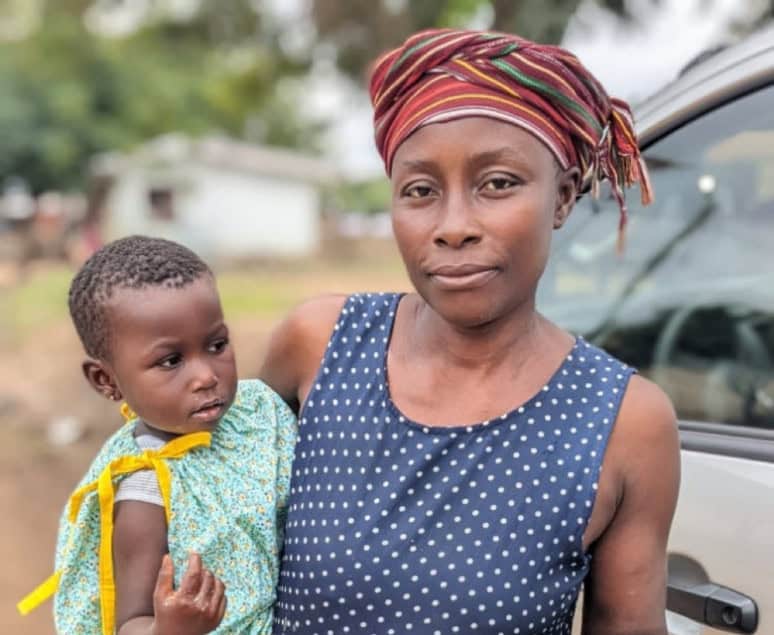
Written by Bernice Agyekwena, SHI Ghana Communications Manager
Dora, a resident of Kukuboso in the Ashanti Region of Ghana joined the Growing Healthy Food Growing Healthy Children (GHFGHC) Program being run by SHI in her community when she got pregnant because she was determined to give birth to a healthy baby.
“SHI has really helped us ever since the organization came to this community. I joined GHFGHC when I was pregnant. The program supported me and other pregnant women by giving us counseling and food supplements.”
“This enhanced my nutritional status during my pregnancy and my hemoglobin (Hb) was always at the appropriate level because I adhered to all the advice given by the nutrition officers,” she says.
Under the program, Dora was introduced to the concept of exclusive breastfeeding for newborn babies for the first six months and she dutifully followed the practice when she gave birth to her daughter, Alice.
“I was used as an example to demonstrate to lactating mothers the benefits of exclusive breastfeeding whenever I attended the Child Welfare Clinic in my community, and my daughter never suffered from Severe Acute Malnutrition (SAM) as was the case with some babies.”
After experiencing at first hand the benefits of exclusively breastfeeding a newborn baby for the first six months, Dora was excited about the outcome and could not bear to keep this information to herself but wanted to share it with new mothers in her community to enable them to make the best choice with regards to how to take care of their newborn babies.
Ultimately, she signed up as a lactation coach with the program and has since been teaching other new mothers in the community how to effectively breastfeed newborns.
“Now that I am a lactation coach, I will try my best to support mothers and encourage them to practice exclusive breastfeeding and appropriate complementary feeding after six months since children less than 2 years are in their critical stage of development and adhering to nutritional guidance goes a long way to help them.”
According to a USAID report, Ghana’s exclusive breastfeeding rate dropped from 63 percent in 2008 to 52 percent in 2014. This comes with dire consequences because children who are not exclusively breastfed for the first six months of life are more prone to diarrhea and pneumonia, which are the two leading causes of childhood deaths worldwide. By supporting mothers to practice recommended breastfeeding practices, nearly 50 percent of under-two child deaths caused by diarrhea and pneumonia could be prevented. In Ghana, this equates to nearly 4,000 preventable deaths of children under age 2 per year.

Powered by Wapiti Digital #servetheherd

Join us on Wednesday, February 11th @ 5:30-7:30 PM
Sip wine, nibble on tasty bites, and help spread love across the globe!
This is my rich text.
This is more rich text.
I am a list
Lists are cool